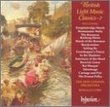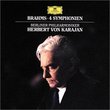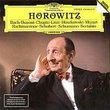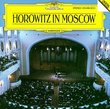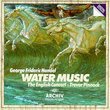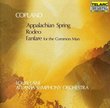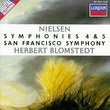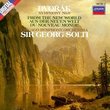| All Artists: Robert Schumann, Domenico Scarlatti, Franz Liszt, Alexander Scriabin, Franz [Vienna] Schubert, Vladimir Horowitz Title: Vladimir Horowitz: The Studio Recordings - New York 1985 Members Wishing: 0 Total Copies: 2 Label: Deutsche Grammophon Original Release Date: 1/1/1985 Re-Release Date: 10/25/1990 Genres: Special Interest, Classical Styles: Marches, Forms & Genres, Fantasies, Sonatas, Historical Periods, Baroque (c.1600-1750), Modern, 20th, & 21st Century Number of Discs: 1 SwapaCD Credits: 1 UPC: 028941921727 |
Search - Robert Schumann, Domenico Scarlatti, Franz Liszt :: Vladimir Horowitz: The Studio Recordings - New York 1985
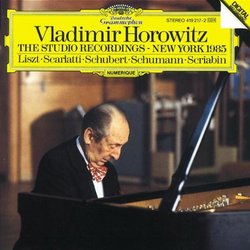 | Robert Schumann, Domenico Scarlatti, Franz Liszt Vladimir Horowitz: The Studio Recordings - New York 1985 Genres: Special Interest, Classical
At age 82, Vladimir Horowitz felt he had a few more things to say--like a new interpretation of Schumann's Kreisleriana and first recordings of works like Schubert's Marche militaire. Technically, age rarely showed in Horo... more » ![header=[] body=[This CD is available to be requested as disc only.]](/images/attributes/disc.png?v=15401716) ![header=[] body=[This CD is available to be requested with the disc and back insert.]](/images/attributes/disc_back.png?v=15401716) ![header=[] body=[This CD is available to be requested with the disc and front insert.]](/images/attributes/disc_front.png?v=15401716) ![header=[] body=[This CD is available to be requested with the disc, front and back inserts.]](/images/attributes/disc_front_back.png?v=15401716) |
Larger Image |
CD DetailsSynopsis
Amazon.com At age 82, Vladimir Horowitz felt he had a few more things to say--like a new interpretation of Schumann's Kreisleriana and first recordings of works like Schubert's Marche militaire. Technically, age rarely showed in Horowitz's playing; interpretively, his age brought marvelous insights, as we hear on this fine program. The virtuoso is definitely at work here, but so is the "grand old master, in sovereign command of his resources." --David Vernier Similar CDs
Similarly Requested CDs |
CD ReviewsThe True Sound of Horowitz Hank Drake | Cleveland, OH United States | 04/13/2000 (5 out of 5 stars) "As someone who heard Horowitz in recital (Boston, October 19, 1986, a day I will never forget) I can report that this CD comes closer than anything else I have heard to the real thing. This is a demonstration quality disc for piano fans. Schumann's Kreisleriana was a Horowitz speciality. The interpretation here is freer, looser structurally than his 1969 recording. For me, the earlier version is still unmatched in its concentration and the laying bare of Schumann's duality--in my opinion it remains Horowitz's finest solo recording. But this 1985 version also has a lot going for it--the tempos are so flexible, without losing the basic meter; and the phrasing is just so "right." Thus is it with the rest of the recording. This is some of Horowitz's most romantic Scarlatti playing, almost as if Scarlatti were a baroque Chopin--not as outlandish as it seems, as Chopin adored Scarlatti's music. The Liszt Valse Oubliee was another Horowitz specialty, he recorded it at least three times officially, this one is my favorite. Horowitz captures Liszt's mystical eroticism in a way few others have matched. The Impromptu from 1872 is rarely played, and hearing it one understands the comment that Horowitz can get forty colors from a piano by striking two keys. The Scriabin Etude is the central romantic pivot in this recital. Horowitz plays it differently here than in earlier recordings, beginning quietly and building to a stunning climax. The Schubert Impromptu is played with more flexibility than we would here from such modern imterpreters as Brendel. But past Schubert specialists like Schnabel didn't feel the need to be human metronomes to reveal the structure of the piece. Horowitz imbues the piece with that long lost quality known as charm, and the running scale passages in the final variations are as well balanced as a string of pearls. The Military March is rather like Horowitz's arrangement of Stars and Stripes, but at somewhat lower voltage. Still, it is a dazzling delight, and a rousing conclusion to a marvelous recording." A reason to live to be 83 John Bailey | Philadelphia, Pennsylvania | 08/13/2005 (5 out of 5 stars) "One of my early teachers told me in a lesson, "that was quite good, but you'll play it better when you're forty." Now that I'm getting uncomfortably closer to that age, it's heartening to see how much far Horowitz's 1985 Kriesleriana, recorded when he was almost 83, outshines his 1969 recording, made when he was a mere 65 or so. I bought this recording when it came out in 1986, and althought I accumlated a number of other recordings of it around the time I learned the piece, this recording remains the most convincing performance I've heard, even in places where I don't *agree* with Horowitz's interpretation. The virtuosity of this performance lies especially in its extreme, yet completely natural, rhythmic freedom, and in its highly intelligent-- and gorgeous-- voicings. His personality is also well suited to the dialectical nature of the pieces. The piece is now thought to be based on Hoffman's _Life and Opinions of the Tomcat Murr_: Horowitz's tempermental virtuoso side reflects Hoffman's Kriesler, while his more contemplative, whismsical side perfectly portrays the Tomcat Murr, years before a connection between Hoffman's novel and Schumann's work was made (in print, anyway). Of the shorter items on the CD, Scarlatti K. 87 sonata, stands out in particular for its impeccable phrasing (even though he plays from an edition with a couple glaring mistakes in it)." Magical music fan | Amman, Jordan | 03/02/2006 (5 out of 5 stars) "A very personal Kreisleriana that's probably unmatched for depth and colour. Perlemuter, too, recorded the piece in his eighties and achieves a very fine result.
Many top recordings, including the earlier Horowitz, are rushed, conformist and dull. A stark exception is Helene Grimaud who balances lyricism and power to great effect. Hers and this second Horowitz stand well out of the crowd. " |

 Track Listings (15) - Disc #1
Track Listings (15) - Disc #1